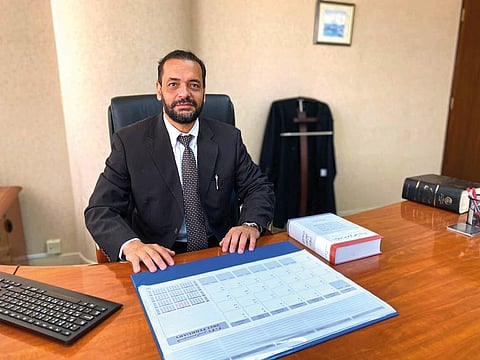Cheque bounce deemed less criminal through new UAE law
In new law, punishment no longer part of Penal Code, moved to Commercial Transaction Law

Under new law, punishment for a bounced cheque is no longer included in the Penal Code, being moved to Commercial Transaction Law
Cheques have always played a pivotal and significant role, not only in business activities where they are utilised by businesses to fulfill their obligations towards one another, but also in day-to-day activities by people who use cheques to pay for rent, car installments, school fees, and other expenses.
Originally introduced as a tool for payment, cheques should be treated as money itself. However, they can also serve as a means to secure and safeguard the fulfillment of certain obligations in the future.
Recognising their importance, the UAE federal authority intervened from the onset and empowered cheques with criminal protection to instill confidence in beneficiaries that cheques are a trustworthy payment tool. In the event that a cheque fails to fulfill its intended purpose, the issuer will be subject to criminal punishment. This provides the beneficiary with the ability to civilly claim the value of the cheque. While this principle has long been established, UAE authorities acknowledge that changes in circumstances are inevitable.
Bounced cheque treated as executive deed
The UAE courts have observed that not all reasons for bounced cheques should be criminalized or characterised as criminal activity. This motivated UAE lawmakers to intervene and make changes that would reflect this observation. Thus, the law was amended, and a series of changes were introduced until reaching the recent shape of the regulations that deal with cheques. Under the new law, the punishment for a bounced cheque is no longer included in the Penal Code, as the punishment has been moved to the Commercial Transaction Law.
However, punishment for a bounced cheque still exists within the Commercial Transaction Law for criteria defined by the lawmaker, but none of which involve bouncing the cheque for insufficient funds, which was previously the most common reason for cheque bouncing, but now is no longer criminalised.
Moreover, a cheque that bounces due to insufficient funds shall be treated as an executive deed. In other words, the holder of the bounced cheque due to insufficient funds can directly approach the execution court, without the need to file a case, to claim the unpaid value of the cheque, whether it is part or all of it, and can instantly initiate the enforcement procedure against the issuer of the cheque to recover its unpaid value after meeting the requirements of application.
This approach is revolutionary and compensates the holder of the cheque for the decriminalisation by granting the holder with a quicker, less expensive, and more efficient way of recovering the value of the cheque.
Talking about the revision, Mohamed M. Abdel Hameed, Senior Legal Consultant, Al Midfa & Associates, says, “Above all, we appreciate the changes that have been implemented by the lawmakers, as for almost three decades, we have witnessed the negative impact of bounced cheques on individuals who have not been in a position to foresee the criminal implications of such actions, often believing that their actions were unintentional.”
About Al Midfa & Associates
Al Midfa & Associates is a local law firm specialising in litigation. The practice was founded 26 years ago, in May 1997. Since then there has been no looking back and the firm has grown to being considered today as one of the best professional law firms in Dubai. The firm handles substantial international work. The Firm/Counsels have a broad-based practice with a reputation for offering the full range of quality personalized legal services. The firm is also listed on the panel of lawyers maintained by several embassies in the UAE.
Practice Areas: Litigations; Family Law; Civil Law; Commercial Law; Labour Law; Succession & Inheritance; Trade Marks / IP litigation Law; International Arbitration Law; Criminal Law.



